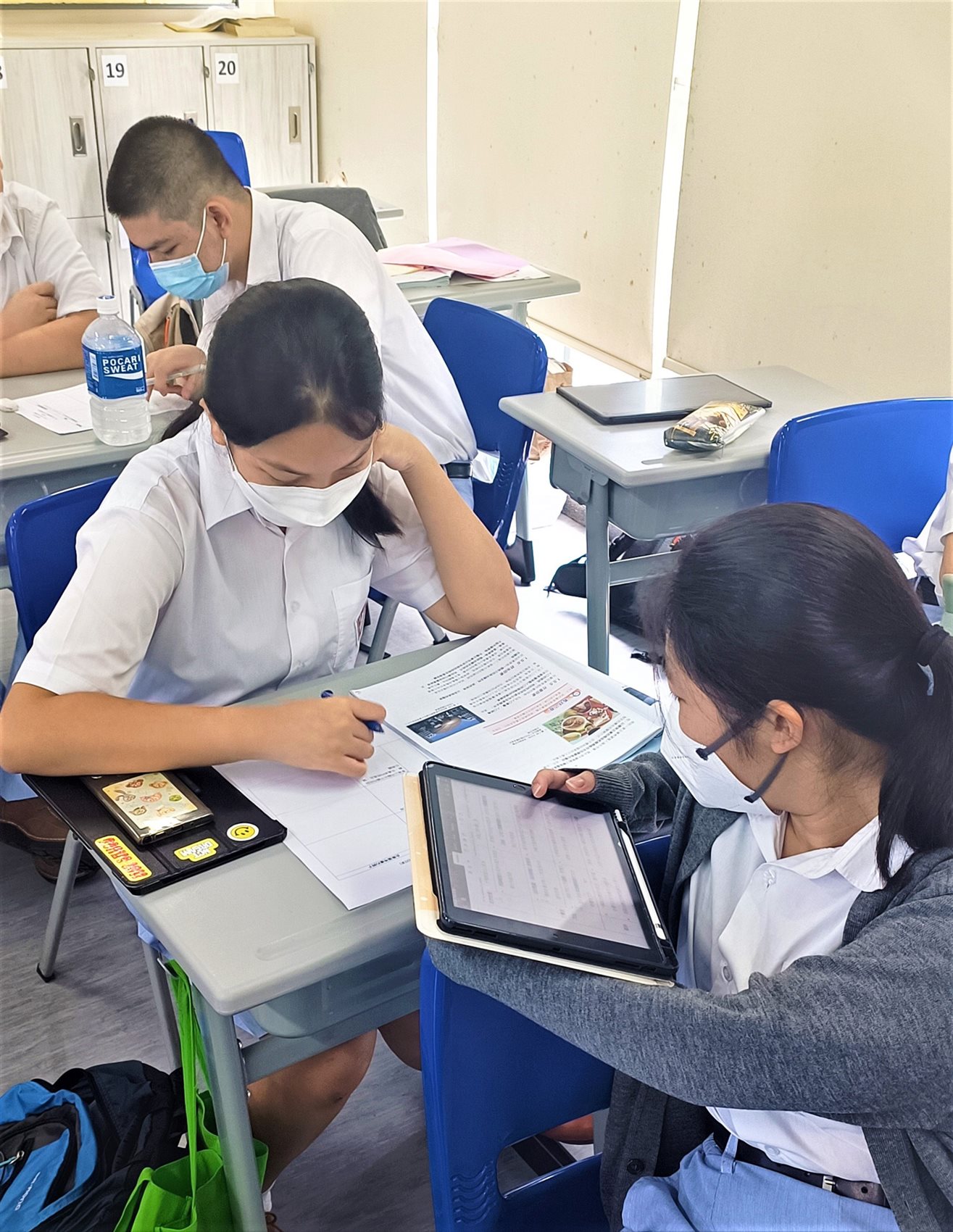Objectives:
The overall aims of the Business, Accounting and Financial Studies (BAFS) curriculum are:
- to provide students at senior secondary level with fundamental business knowledge and skills, and develop their positive values and attitudes, so that they can fulfil their roles competently and confidently as consumers, investors, employees and/or entrepreneurs.
- to develop students' generic skills in research, analysis, leadership, team building, communication, critical thinking, creativity, and problem-solving and transfer them to different domains; and
- to explore different aspects of business to prepare students for life, for learning and for employment.
Business, Accounting and Financial Studies (Technology Education KLA)
Hong Kong Diploma of Secondary Education Examination (HKDSE)
ASSESSMENT OBJECTIVES
The public assessment of Business, Accounting and Financial Studies (BAFS) aims to assess candidates' abilities to:
- demonstrate knowledge and understanding of different areas of business;
- apply such knowledge and understanding to familiar and novel situations;
- analyse, synthesise and evaluate information in the context of business decisions, taking into account the integrated and dynamic nature of business problems; and
- communicate facts, opinions, and suggestions in an effective manner.
MODE OF ASSESSMENT
Candidates are required to enter the examination in either of the two strands: Accounting or Business Management.
|
Component
|
Accounting strand
|
Business Management strand
|
Weighting
|
Duration
|
|
Public Examination
|
Paper 1A Compulsory part
|
Paper 1B Compulsory part
|
25%
|
1 hour
|
|
Paper 2A Elective part
|
Paper 2B Elective part
|
75%
|
2 ½ hours
|
PUBLIC EXAMINATION
Paper 1 Compulsory part
Candidates will attempt either Paper 1A or 1B. Questions will be set on the compulsory part of the curriculum.
There will be two sections as follows:
|
|
Paper 1A
Accounting strand
|
Paper 1B
Business Management strand
|
Weighting (25%)
|
Remarks
|
|
Section A
|
24 multiple-choice
questions
|
24 multiple-choice
questions
|
17%
|
All questions are compulsory. Same questions will be set for
common topics in both strands.
|
|
Section B
|
3 short questions
|
3 short questions
|
8%
|
Paper 2 Elective part
Candidates will attempt either Paper 2A or 2B. Questions will be set on the elective part of the curriculum. There will be three sections as follows:
|
|
Paper 2A
Accounting
strand
|
Paper 2B
Business Management
strand
|
Weighting
(75%)
|
Remarks
|
|
Section A
|
4-5 short questions
|
5-6 short questions
|
33%
|
All questions are
Compulsory.
|
|
Section B
|
3 application problems
|
2 case studies
|
27%
|
|
Section C
|
1 long question
|
1 essay question
|
15%
|
Answer one out
of two questions.
|
Overview of the learning elements of the curriculum framework
(Business Management Strand)
COMPULSORY PART
1(a) Business Environment
- Hong Kong Business Environment
- Forms of Business Ownership
- Business Ethics and Social Responsibilities
1(c) Basics of Accounting
- Purposes and Role of Accounting
- The Accounting Cycle
- Uses of Financial Statements
- Accounting Assumptions, Principles and Conventions
1(d) Basics of Personal Financial Management
- Time Value of Money
- Consumer Credit
- Personal Financial Planning and Investment
- Stock Trading as an Investment
ELECTIVE PART Business Management Module
3(a) Introduction to Management
- Management Functions
- Key Business Functions
- Small and Medium Enterprises (SMEs)
3(b) Financial Management
- Financial Analysis
- Budgeting
- Sources of Financing
- Capital Investment Appraisal
- Working Capital Management
- Risk Management
3(c) Human Resources Management
- Functions of Human Resources Management
- Development of a Quality Workforce
3(d) Marketing Management
- Role of Marketing
- Marketing Research
- Customer Behaviour
- Marketing Strategies for Goods and Services
Features:
To provide students with fundamental business knowledge and skills, and develop their positive values and attitudes, we provide different exposures and experiences to our students inside or outside school, so that they can fulfil their roles competently and confidently as consumers, investors, employees and/or entrepreneurs.
 Students make good use of electronic platforms for collaborative learning in the lessons.
Students make good use of electronic platforms for collaborative learning in the lessons. Students conduct field trips to learn about personal finance. The activity encourages students to pay attention to their daily finance habits and to inspire them to reflect on their personal finance attitudes.
Students conduct field trips to learn about personal finance. The activity encourages students to pay attention to their daily finance habits and to inspire them to reflect on their personal finance attitudes. Students conduct field trips to learn about personal finance. The activity encourages students to pay attention to their daily finance habits and to inspire them to reflect on their personal finance attitudes.
Students conduct field trips to learn about personal finance. The activity encourages students to pay attention to their daily finance habits and to inspire them to reflect on their personal finance attitudes.